- Home
- Patricia Briggs
Dragon Blood h-2 Page 2
Dragon Blood h-2 Read online
Page 2
"Sir, there's bandits, sir. Down by Da's farm. He sent me here to get you."
He was covered in sweat, and once he'd gotten his message out, he had to give his all to breathing again.
"Atwater is your father?" I asked, and he nodded.
I always knew when there was trouble brewing on Hurog land. Oreg said it was because I was tied to it by blood right, and told me that several of my distant ancestors had the same tie to the land. Hurog spoke to me—when I listened.
A swift touch of magic showed me that there was no fighting near Atwater's farm now, which meant that the bandits had been driven off. If Atwater or one of his family had been killed, I'd have known about it. They belonged to Hurog in a way that had nothing to do with law and everything to do with blood.
"Don't fret, boy," I said. "Atwater's been fighting bandits longer than I've been alive. Let's get my horse, shall we?"
In the end there were three of us following the boy. He plainly thought we needed more; I thought we could do with less. Rides with Oreg and my brother were always more interesting than pleasant.
My brother, Tosten, rode his new roan war stallion, a gift from our uncle, and came with the excuse that the animal needed exercise when he found me saddling my own horse in the stables.
Tosten was never going to be as tall as I was, but the past four years had given him a man's face and a fighter's body. He looked cool, competent, and clever (as some court woman said in my hearing). Competent and clever, I agreed with. Coolness might come with age—maybe in fifty years or so.
While I waited for Tosten to saddle his horse, Oreg showed up and, without a word, took out his own gelding. Except for his dark hair and half a head in height (Tosten was taller), he and Tosten looked enough alike to be twins.
"Bandits," I said in answer to Oreg's look as I mounted and lead the way out of the bailey.
"My brother spied them near our farm and Da sent me here for help." There was a hint of accusation in the boy's tone. Three people, it implied, would not be much help.
The air was chill with the coming winter. We'd taken the last of the harvest in this week. Oreg said he thought it might snow soon, but today the leaves still clung to the branches of the rowan and aspen in bright clumps that stood out against the dark greens of the pines and firs. Pansy, my stallion, snorted with pretended fear and shied violently when a falling leaf fluttered too close. In battle, not even a heavy blow would cause him to step to the right or left without my request, but outside of serious work, Pansy loved to play.
The shortest path to Atwater's farm skirted the edge of the mountains where the land was too rocky to plow. The farm was isolated in a hanging valley away from the other cultivated fields of Hurog. That isolation had lured bandits into thinking it was a target before, but none of them had ever managed to take anything from Atwater. I didn't think that was going to change today.
The turf was still soft enough that the steady trot I'd set was unlikely to cause the horses much stress. People were another matter entirely.
"We need to hurry," said the boy for the third time. I'd had a gentle mare found for him, but I needn't have. He sat her bareback (his choice) and was impatient with the rest of us for holding him back.
"Never arrive for a fight breathless," snapped Tosten.
"If they overran your farm, we'd smell smoke by now," I reassured the boy, shooting Tosten a repressive look. "They might not have seen the farm, or your father may have driven them off or killed them. Either way we don't have to hurry. There can't be very many of them, or I'd have heard about it before they made it this far onto Hurog lands."
"Don't worry about Tosten, boy," said Oreg cheerfully. "He's as impatient as you are."
Tosten sank into silence. Oreg, in contrast, was unusually lighthearted, teasing the boy until he smiled—at which point my brother let his stallion speed past us. With a glance at me, the boy sent his mare cantering after my brother—obviously hoping I'd hurry after both of them.
"I wish you wouldn't bait Tosten," I murmured to Oreg.
Oreg just smiled, though his eyes didn't light up the way they did when he was really amused. "Your brother has had plenty of time to decide that I'm no threat to him. Time he grew up. If I choose to tweak his tail a bit—that's between him and me. He doesn't need your protection anymore, Ward."
I rolled my eyes. "You encourage him," I said.
"I frighten him," Oreg corrected, and even his mouth was serious. I must have looked unconvinced, because he shook his head and said, "I'm no threat to his relationship with you, and he knows that. It hasn't been about that for some time." Oreg smiled again, but this time it was a genuine one. "Poor lad's fighting dragons."
It was an old Shavig saying about someone who was displaying rash bravery impelled by fear. The ironic twist to Oreg's tone was because in this case it was literally true. Oreg's father had been half-dragon. Oreg could take dragon form when he wished, and considered both the human seeming and the dragon his true forms.
I weighed what Oreg had said. Tosten was the only one who knew the whole story about Oreg. As my heir and as my brother I thought I owed him that. Perhaps it would have been better if I'd stuck to half-truths.
Atwater's boy waited for us at the top of the trail, though Tosten was still ahead.
"Tosten told me it is magic that lets you see there's nothing wrong at my home. There's a lot of folks who are frightened by magic."
It sounded like a personal observation, and I looked at him sharply. He colored up, but his eyes met mine squarely.
"Most folks know you can do magic, my lord," he said firmly. "Most of us are grateful for it. Father says that they'd never have found my brother and his hunting party caught out in the blizzard if you hadn't joined in the search."
I smiled at him and he dropped in beside us. Tosten, when Oreg is not around, usually knows how to charm people into doing what he wanted them to. It came from being a bard, he claimed, but I thought it might be a bit the other way around. Charm, good voice, and clever fingers made for good bards.
As we neared Atwater's farm, the land told me death had visited here recently. Death was no stranger to Hurog—its mortal residents came to an end on a regular basis—but I had to assume that this death had something to do with my being summoned here. Whoever had died was not of the earth of Hurog, which meant it wasn't Atwater or his people. It must be the bandits.
Nevertheless, when we passed the boundary at the edge of the farm, I drew my sword. Tosten (who'd let us gradually catch up to him) and Oreg drew steel likewise. The path we'd taken approached the farmhouse, which from the rear was more of a fort than a house, but a lookout spied us riding down into the valley and let out a series of notes on his hunting horn—Atwater's own call. The tightness eased in my shoulders.
A moment later the unmistakable form of the holder, himself, came around the corner. Seeing us, he whistled an all clear, so I sheathed my sword.
The boy heaved a great sigh of relief and nudged his mare into a gallop.
When one is a grizzled old war lord or the younger son of a holder, one may gallop as much as one wishes. Since I was a young lord who was trying to live down various reputations, I slowed my horse to a walk.
Mounted on my father's old war stallion, walking was sometimes adventurous. Pansy knew better, but I let him snort and huff and generally announce to everyone watching that he was dangerous and would be much faster than that little mare if I would just let him go.
Atwater nodded at me when we got close enough to talk. "Thank ye, my lord, for coming. But the problem of bandits has been dealt with. I've the bodies if you'd like to look at 'em."
Atwater was a mountain of a man, approaching my height and build. His pale blond hair fading unnoticeably to gray was braided in old Shavig style—unusual now, but not worth commenting about. His beard, however, was a magnificent thing. Fiery-red, it covered his face and a fair bit of chest. A little barbaric by proper Kingdom standards, but my Hurog folk were beginnin
g to exhibit a pride in our Shavig heritage.
Like many of the older men at Hurog, Atwater had fought to put down the rebellion in Oranstone at my father's side. Sometime during the campaign, Atwater had conceived a dislike for the previous Hurogmeten. I hadn't been fond of my father for my own reasons, but even I had to admit there weren't many men who could fight as well as he had. Most of the men who fought under him wouldn't hear a word against him. I don't know what my father had done to Atwater, but it had taken me the better part of two years to make him see that I was not the man my father had been.
Tosten, Oreg, and I followed Atwater and his son around the building into the chaos of children and relatives who helped him farm and protect the land. At the center of the fervor were three dead men, covered decently for the sake of the children.
I dismounted, handed my reins to Oreg, whose gelding Pansy tolerated, and pulled the blankets aside to look at the dead men's faces. I took care to keep the blankets arranged so the children couldn't peek. I'd seen one of them before, but it took me a moment to remember where.
"Mercenaries from Tyrfannig," I said, dropping the cover over the last man's face. Tyrfannig was the nearest seaport town half a day's ride to the south. Hurog bordered the ocean, but her shores were too rocky for ships to harbor in. "They must not have caught jobs with the merchants going south and decided to become self-employed." Sometimes mercenaries didn't see the difference between looting on a battlefield and looting from anyone they could. "I'll see if anyone in Tyrfannig wants the bodies. Otherwise we'll bury them ourselves, eh?"
"Yes, my lord."
I started to turn away, then realized something about the wounds I'd seen on the bodies. "Who took them down?" Atwater was famed for his bow work and could use an ax on people as well as wood, but he'd never have taken on these bandits armed with nothing more than a knife. Yet the two bodies with the most obvious death wounds had been killed by a short blade, not an ax. I didn't know about the third—and wasn't about to examine the bodies more closely with all the children milling about.
"No, sir. My oldest boy, Fennel, saw them coming in time to warn us. I sent Rowan to you, and we waited. After a bit I tracked Fennel's trail to where he'd seen the bandits. And I found them three dead, sir. And I found what killed 'em, too. You'll never guess."
As we'd spoken, Atwater's wife had come out of the house with a little sprite of a girl about six.
"It was a girl," the child caroled in satisfied tones. "A girl killed them bandits all by herself."
Atwater's left eyebrow buried itself in his hairline. His wife shrugged.
"My aunt could have killed them," I said. "Why are you so surprised a woman took care of them?"
Atwater shook his head. "Maybe Stala could at that. But I'd be surprised if a man in this woman's condition could have walked from where we stand to my home, let alone killed three healthy men with naught but a puny knife. Would you come look at her?"
Bemused, I nodded at Oreg. "Stay out here and keep the babes out from under Pansy's feet, please?"
Tosten gave his reins to Oreg, too.
Atwater's house was dark and close, insulated for winter with dried grasses and straw. I had to duck my head to avoid rubbing the ceiling.
The fire in the hearth was more for light than warmth—that would change as winter approached. One of Atwater's older daughters sat on a nearby bench sewing, a bucket of water by her feet should a spark fly out and touch either fur or straw. She nodded at me, but turned shyly back to her work. I didn't know how she could sew in the dim light. Even with the fire so near, I could barely tell there was a person buried in the furs in front of the hearth.
But I could smell the distinctive odor of rotting flesh. I knelt beside the furs and touched the skin on the back of the unconscious woman's neck, feeling the dry heat.
"She hasn't moved since I found her, my lord," said Atwater. "Her weapon's on the table. After seeing the bodies, I thought I'd better get it out of her reach."
I got up and looked at the knife on the table. Not a hunting knife—the blade was too short, not even a full finger-length. A skinning knife, I thought, but not a common one at all. The metal was worked like the finest sword, the pattern of its folding visible even in the darkness of the house.
Tosten whistled softly. "She took out three mercenaries with that knife?"
"They underestimated her," I said, setting the knife back on the table. Stala said that men tended not to take her seriously because she was a woman, and that gave her an advantage that more than made up for the difference in size and strength. "Tosten, would you go hold the horses and send Oreg in to look at her wounds?" I'd done some field surgery, but the smell of flesh-rot told me we'd need more than that here—and Oreg, among other things, was an experienced healer.
Tosten nodded and turned on his heel without comment.
When Oreg appeared in his stead, the atmosphere in the house changed. No one in the house acted like they were afraid of Oreg, but they set him at a distance due the Wizard of Hurog.
Oreg's dark hair made him stick out among the fair-haired Shavigmen, but his purple-blue eyes, duplicates of Tosten's, proclaimed him a Hurog born and bred. In the past few years, unbound by the spells that had held him, he'd begun to look more like a man and less a boy, but he, like Tosten was slight of build. He didn't look like someone to be afraid of. Still less did he look like a man who had arisen from the dead.
I'd told everyone that Oreg had been ensorcelled and that by killing him I'd broken the spell. They seemed to accept it and Oreg—but they gave him space when they could.
Oreg held up his hand as he approached the hearth, and light reflected from his curved palm and lit the little house as if the roof had come off and allowed the sun into all the dark corners. He tossed the ball of light up and it hovered above him while he pulled the furs off of the woman to get a better look at her.
In Oreg's light, her cheeks were flushed with fever and her eyes were sunken. But then, even at her best she had never been beautiful—not by conventional standards.
"Tisala," I said, stunned.
Oreg stopped his examination to peer with momentary interest at her face. "So it is," he agreed mildly. "Good thing they took her knife away from her."
"Do you know her, my lord?" asked Atwater as if it surprised him not at all. He'd gone from thinking I was as brutal and irrational as my father to expecting miracles ever since that night last winter when I found his son.
"Yes, I know her," I said. It didn't seem enough, so I added, "I fought with her at my back." And there wasn't a higher compliment any Shavigman could give.
Atwater nodded, content that his lord was still odd, worldly, and all-knowing.
The last time I'd seen Tisala, her curly dark hair had been shorter than my own, but now it hung in lank tangles down to her shoulders, making her skin all the more white.
Oreg's hands were gentle, but when they touched her left hand, her whole body stiffened and she moaned.
"She's been tortured," he said matter-of-factly.
I nodded. It was hard to miss: both hands, left worse than right, both feet. No telling what other damage had been done: She wore an old pair of trousers, patched and baggy, and a shirt whose arms were too short over the rest.
"They hadn't had her long," he said at last. "She'll live, if the fever and the putrefaction don't kill her. But we ought to take her to the keep, where my medicines are."
Magic, that meant. I'd told Oreg not to tell people exactly what he could do. He couldn't really cure her, but he could kill the infection and let her body heal on its own—which was more than any other mage I'd ever heard of could do. It would be safer for him if all of Shavig didn't start whispering about how powerful the Hurogmeten's wizard was. Better by far to avoid all notice so we didn't get another Kariarn looking for power.
I took one of the larger furs and rolled Tisala in it. Then I scooped her up and stood, forgetting how low the ceilings were, so I rapped my head a good one
.
Atwater winced in sympathy.
As soon as we were well away from the farm, my brother guided his horse next to mine and said, "What was Tisala doing here?"
Oreg gave a snort of laughter. "Why do all strays end up at Ward's door?"
"I don't know," I said. Had she been running to me? It would have seemed unlikely to me this morning—I hadn't seen her in a long time and had only known her briefly. I wouldn't even have thought I would have left much of an impression on her—I had been nineteen and full of myself, while she had been her father's right hand for several years. Moreover, I was nothing out of the ordinary—well, except for my size—while she was the only female warrior I knew of other than my aunt Stala, who served as my arms master.
I looked down at her again. Undeniably she was here. She'd fled whoever had hurt her, and come to me. I remembered hearing that she'd been estranged from her father. It bothered me that the only one she'd had to turn to was someone she'd known a few days several years ago.
"I'd like to know how she got into this condition," I said.
"The mercenaries?" hazarded Oreg, who'd ridden up to my left. But he shook his head almost instantly. "She'd have gutted them long before they could bring her up here."
"Her father, Haverness, disowned her for taking up with a bunch of dissidents in Estian last year, didn't he?" Tosten mused. "People who wanted his half brother Alizon on the throne rather than Jakoven?"
King Jakoven's name made me pause. If it had been Jakoven, then Tisala did indeed have a reason for coming here. There weren't many nobles still powerful enough to thwart the High King of the Five Kingdoms, but my family was. Hurog was an ancient keep and carried more power than its lack of wealth should lend. The Shavig were a long-memoried people, and Hurog had ruled Shavig in the days before the Tallvens had eliminated their competition.
"I wouldn't rule it out," I said. "That would explain why she fled here, rather than to her father or one of her coconspirators."

 Wolfsbane
Wolfsbane When Demons Walk
When Demons Walk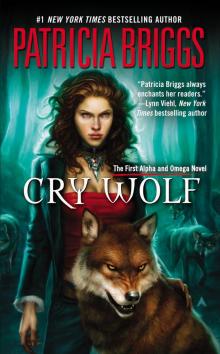 Cry Wolf
Cry Wolf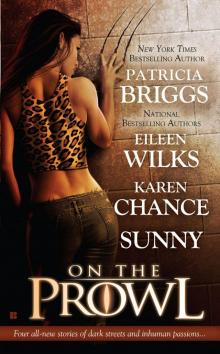 On the Prowl
On the Prowl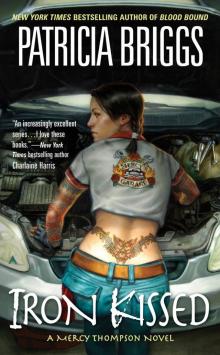 Iron Kissed
Iron Kissed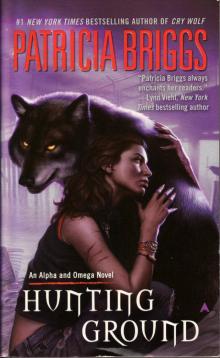 Hunting Ground
Hunting Ground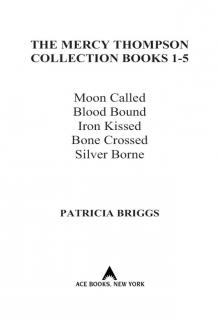 Patricia Briggs Mercy Thompson: Hopcross Jilly
Patricia Briggs Mercy Thompson: Hopcross Jilly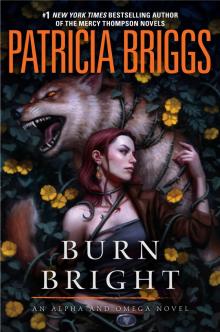 Burn Bright
Burn Bright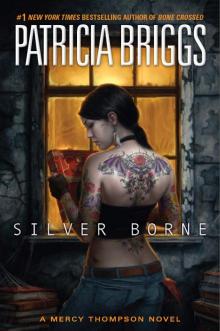 Silver Borne
Silver Borne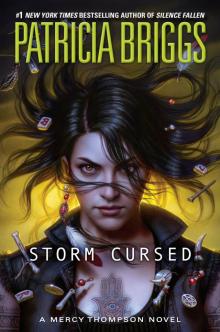 Storm Cursed
Storm Cursed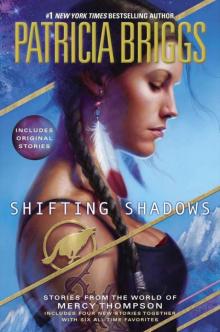 Shifting Shadows
Shifting Shadows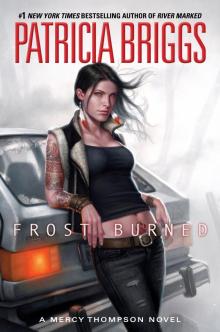 Frost Burned
Frost Burned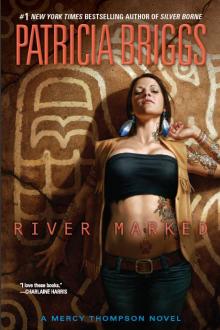 River Marked
River Marked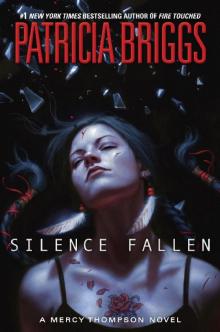 Silence Fallen
Silence Fallen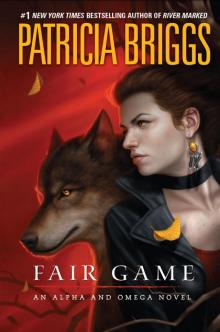 Fair Game
Fair Game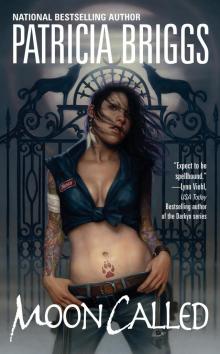 Moon Called
Moon Called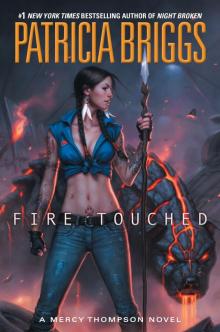 Fire Touched
Fire Touched Dead Heat
Dead Heat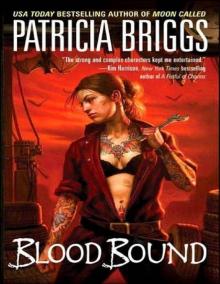 Blood Bound
Blood Bound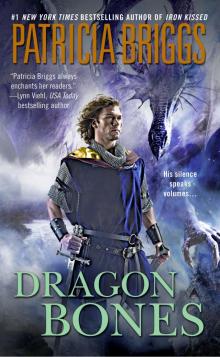 Dragon Bones
Dragon Bones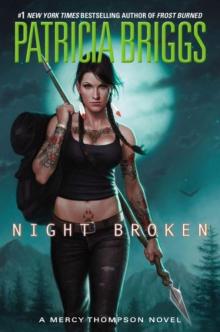 Night Broken
Night Broken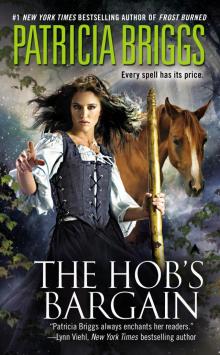 The Hobs Bargain
The Hobs Bargain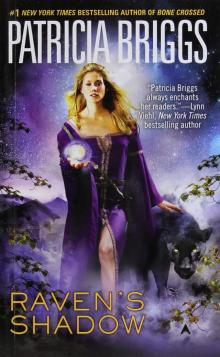 Ravens Shadow
Ravens Shadow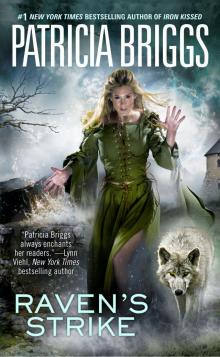 Ravens Strike
Ravens Strike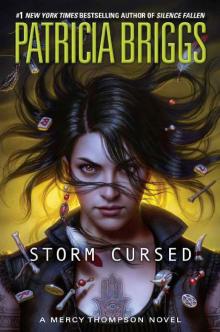 Storm Cursed (A Mercy Thompson Novel)
Storm Cursed (A Mercy Thompson Novel)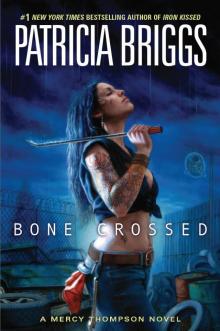 Bone Crossed
Bone Crossed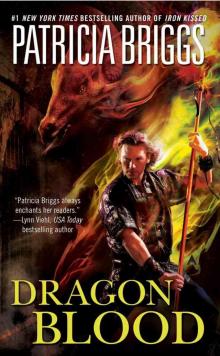 Dragon Blood
Dragon Blood Smoke Bitten: Mercy Thompson: Book 12
Smoke Bitten: Mercy Thompson: Book 12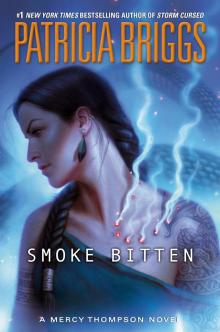 Smoke Bitten
Smoke Bitten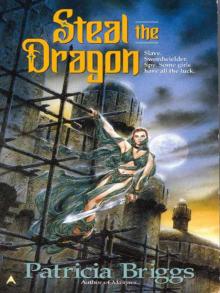 Steal the Dragon
Steal the Dragon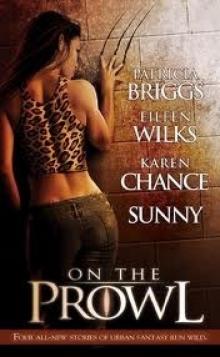 0.5 On The Prowl (alpha and omega)
0.5 On The Prowl (alpha and omega)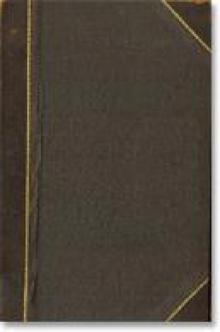 Alpha and Omega
Alpha and Omega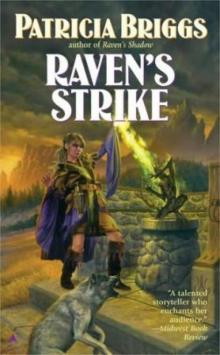 Raven's Strike rd-2
Raven's Strike rd-2![[Mercy 03] - Iron Kissed Read online](http://i1.bookreadfree.com/i/03/24/mercy_03_-_iron_kissed_preview.jpg) [Mercy 03] - Iron Kissed
[Mercy 03] - Iron Kissed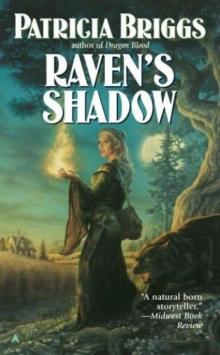 Raven's Shadow rd-1
Raven's Shadow rd-1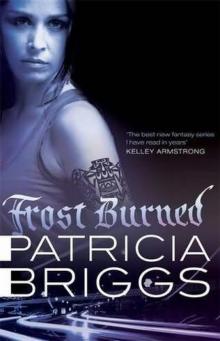 Frost Burned mt-7
Frost Burned mt-7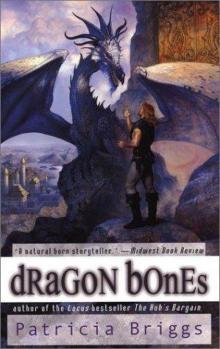 Dragon Bones h-1
Dragon Bones h-1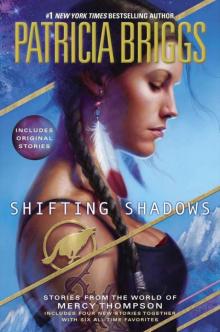 Shifting Shadows: Stories from the World of Mercy Thompson
Shifting Shadows: Stories from the World of Mercy Thompson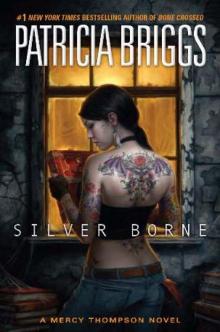 Silver Borne mt-5
Silver Borne mt-5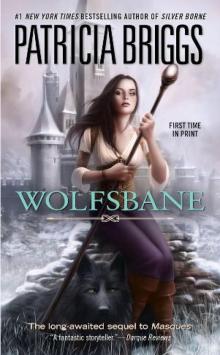 Wolfsbane s-2
Wolfsbane s-2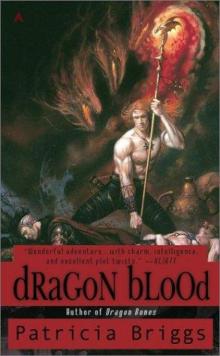 Dragon Blood h-2
Dragon Blood h-2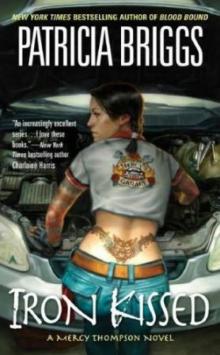 Iron Kissed mt-3
Iron Kissed mt-3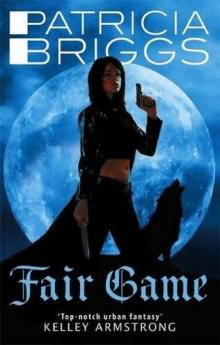 Fair Game aao-3
Fair Game aao-3 Masques s-1
Masques s-1![[Hurog 01] - Dragon Bones Read online](http://i1.bookreadfree.com/i1/04/03/hurog_01_-_dragon_bones_preview.jpg) [Hurog 01] - Dragon Bones
[Hurog 01] - Dragon Bones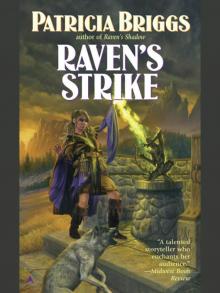 Raven s Strike
Raven s Strike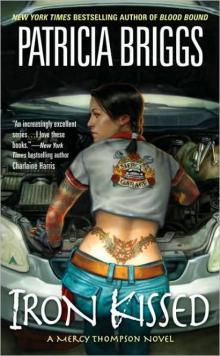 Mercedes Thompson 03: Iron Kissed
Mercedes Thompson 03: Iron Kissed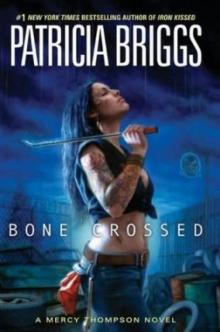 Bone Crossed mt-4
Bone Crossed mt-4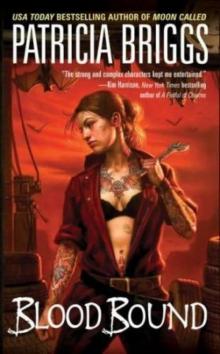 Blood Bound mt-2
Blood Bound mt-2![[Mercy 01] - Moon Called Read online](http://i1.bookreadfree.com/i2/04/09/mercy_01_-_moon_called_preview.jpg) [Mercy 01] - Moon Called
[Mercy 01] - Moon Called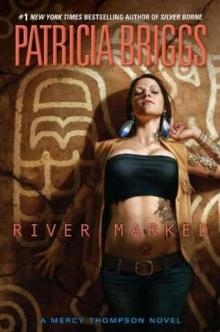 River Marked mt-6
River Marked mt-6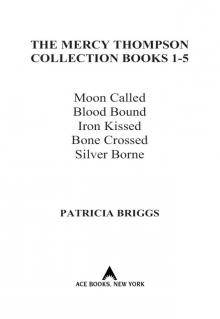 The Mercy Thompson Collection
The Mercy Thompson Collection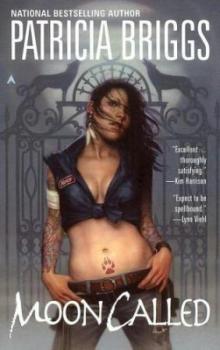 Moon Called mt-1
Moon Called mt-1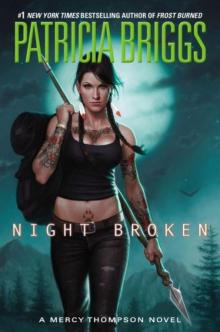 Mercy Thompson 8: Night Broken
Mercy Thompson 8: Night Broken